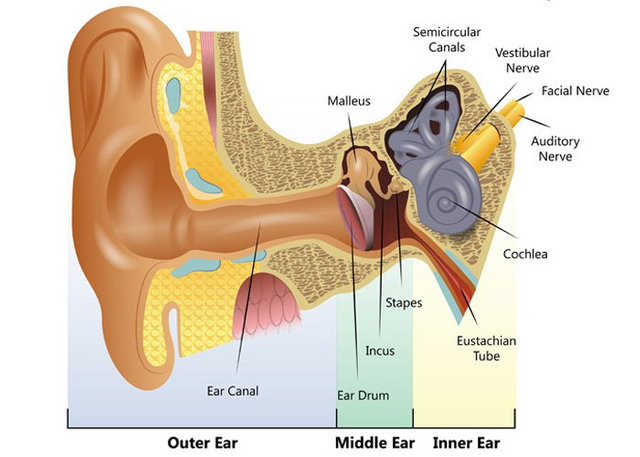Important terms for hearing, memory and mind
Hearing aids
It is a complex physiological process linked to receiving sounds through the ears and then to the brain to translate into signals, and it goes through several stages:
The outer ear or the ear flap gathers the sound waves passing through the air and passes them to the eardrum.
The eardrum - a very thin membrane that separates the outer and inner ears - vibrates by sound waves and those vibrations are passed to the inner ear.
The capillaries that line the cochlear implant vibrate and then transmit them to the brain for identification.
Listen
The hearing process occurs automatically - if you do not have hearing problems - and does not require you to work while listening requires more. Hearing is attention to what is said and even attention to the way it is said and to the languages of its body, and it also goes through several stages:
Reception
This step is more physiological in nature than any other step where we start receiving information through audio and visual channels. Many believe that visual cues accompanying speech are not part of the listening process, but the fact does have a huge impact on how we respond to the messages involved. For example, if you speak to a person in front of you, you will be able to communicate visually and by observing the language of his body, to understand the non-verbal signs in speech unlike what happens when speaking on the phone.
Explanation
At this point we try to understand the information we received and when we understand it we link it to the information already in our awareness. During the process of comparing new and old information, it is possible to reverse or update the information if it is of great importance and this is proven in our awareness, but if the new information is difficult and not recognized by us for us, it will be difficult to retrieve it later unless it is repeated a lot of Times.
Retrieval
Some scientists have done a study to measure the ability of recall in people and found that we forget about half of the article we have after hearing it, and we retrieve about 35% of it after 8 hours and 20% after a whole day. When we recognize and understand the audible information, it is transferred either to the short-term memory where it is forgotten there or to the long-term memory. The first can store information for a period ranging from 20 seconds to one minute, and the long-term memory, if the information is transferred to it from the short-term memory, it can store the information in it to infinity.
